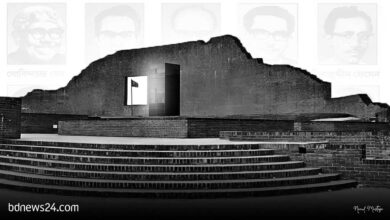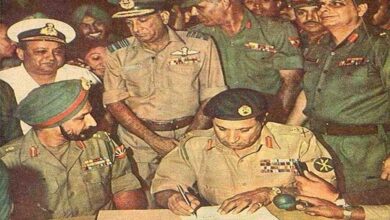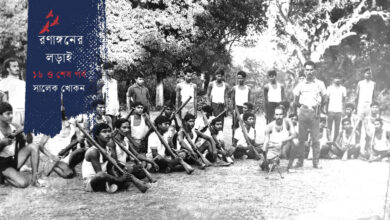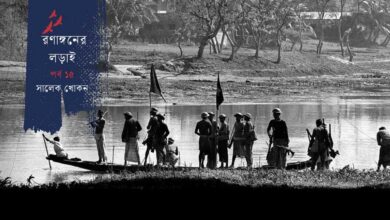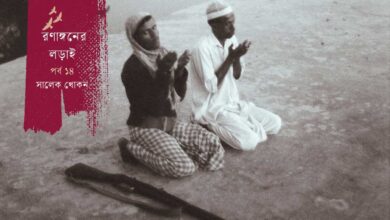Tears of Fire
Narration’s from the Documentary by Sentu Roy related to the 1971 Genocide in Bangladesh committed by Pakistan Army and the agents. The excepts are from the interviews with international journalists, activists and expartriate who were witness to Genocide.
In 1971, a small South Asian nation called Bangladesh Experienced perhaps one of the worst genocide of the post – second war period. At least 3 million people were killed. Another 10 million people were uprooted, forcing them to flee across the border to india. There are many people in the world that are unaware of this massive human tragedy. It was also one of the worst crimes against humanity. Yet no one was ever proosecuted; no one was ever held responsible. The memory of this tragedy is fast fading from our memory. Yet, for those who lost their loved ones, there is a wound that will never heal, until those responsible are charged and prosecuted. The tears may have dried in their eyes, but the pain they must endure is still alive.
After almost 200 years of British rule, the Indian sub – continent was broken up in August 1947 into two independent nations, Pakistan and India. The dividing criteria was religion. The result was that Pakistan had a western wing and an eastern wing, separated by 920 miles of India Territory. Enormous differance seoerated the two region, differances in language, culture, history and heritage. It is well documented that the western wing exploited East pakistan economically and politically. Since its independance, Pakistan has been ruled mostly by millitary. It was a major goal of East Pakistan people to institute a democratic government and press for greater autonomy. When parliamentary election were held in December 1970, the Awami league of East Pakistan won a clear majority. However, the ruling military dictatorship made a mockery of democratic proceedings and refused to hand over power to the East. This resulted intermendous agitation among the people in East Pakistan. On March 25, 1971 the West Pakistan millitary rule and chief of the Army General Yahya Khan ordered his army to attack East Pakistan and suppress the agitation. Thus began nine horrific months of systematic genocide.
SYDNEY SCHANBER
Journalist ( New York Times South Asia correspondent during 1971 and author of the book Dateline Bangladesh on the Liberation Struggle of the Bengalees )
What I saw an evidence that constitute Genocide. The target had been Bengalis in particular Hindus. In towns visited, there were house marked spicily to direct soldiers to those homes to kill peoples. There were houses supporters of the freedom movements or they were Hindus. Every towns, every villages that I visited there were killing fields. In particular places people were taken in a large number and shot or struck down the death of whole with the instruments. There were one of the divices was to put people together, a line of people and shoot them through heir heads that one bullet could kill five to six people before it lost it’s momentum. It was that organised.
PHYLLIS B. TAYLOR
Activist
My felling was increadively out raged. Part of, It was, I am jews and Iwondered as I was child growing up where are the good people, where are good Germans when the trains rolled, when the people were displaced, when the people were being killed and part of my commitment to myself and my commitment to all those who were killed or injured. We were trying to find a way to speak out against injustice. Here again, the whole were being killed because they were simply Bangles not for any reason other than that. So it touched my Jews heart.
R. K. TAYLOR
Activist
We learned that Pakistani ships were coming to the East Coast of the United States to pick up military weapons that would be used in genocide that was happening over in East Pakistan and we felt and we know, we could not stop the ships but may be we could draw the public attention what is happening by doing something dramatic in relation with the ship. The first one of the ship was Padma in Baltimore. We gathered canoes and packs together, we called the news media and telling them that we are coming in Baltimore. We drove down quickly to Baltimore and spend a few days picketing like that when the ships came we launched our fleet out of Baltimore Harver and trisd to get a way of the ships and at the same time many police force, coast car force were trying to prevent us from doing that but eventually we were arrested and we were not able to actually block the ship but what happen was that was the first time the news began to get out instead of few.
SYDNEY SCHANBERG
Very same thing has happened in Rwanda and Vlocanoes and else where in the world and we have set up an international tribunal. But what happened in Pakistan the world community did not stand behind the Bengali issues the number of what they called geo political reason.
© 2011 – 2021, https:.


